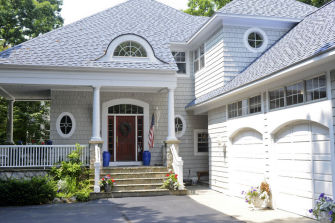Buying a Home for your Family: 4 Tips
 Buying a house is slightly more complex when looking for a place to raise a family. A single person may be willing to settle for a smaller home or one in a less attractive location. It could be difficult, however, to raise children in such an environment—they need a place not only to rest their head but also a safe place to play and express themselves. To size up a home’s potential for being child-friendly, parents or home buyers who are planning to start a family should look at these four tips when buying a house.
Buying a house is slightly more complex when looking for a place to raise a family. A single person may be willing to settle for a smaller home or one in a less attractive location. It could be difficult, however, to raise children in such an environment—they need a place not only to rest their head but also a safe place to play and express themselves. To size up a home’s potential for being child-friendly, parents or home buyers who are planning to start a family should look at these four tips when buying a house.
Size Matters
Size is one of the most important family considerations when buying a house. While past generations may have managed with smaller homes, such places are not optimal today. Children can be noisy and like to run around, spread out their toys, and turn their living space into their play area. A home with minimal space to play can affect your sanity. On the other hand, in a home with a large living room—as well as rooms that can become extra bedrooms—a playroom or a game room will be better suited to help a child thrive and keep them out from under feet. Even if you don’t designate one room for play, an extra room can be an adult haven away from the hustle and bustle of the family.
Practicality
In addition to the size of the home, consider the size of your family and how you function when buying a house. Here are some questions to ask yourself:
- If everyone is on the same schedule, are the kitchen and dining room large enough to be able to cook and serve meals with your family—plus any friends your children may want to invite over—with everyone seated at the same time?
- Will the laundry room be big enough to fit a large washing machine, which is a necessity when there are active children constantly dirtying their clothes or involved in sports?
- Are there a sufficient number of wall sockets for all the computers, televisions and electronic items you and your children use?
- Is there enough closet and storage space for everyone’s things, particularly as your children age?
- Do you value spending time outdoors? Can a home with a large yard, patio or even a pool help your family make the most of the outdoors?
Safety
You’ll be less likely to worry about your children knowing that they are safe, both inside and outside the home. Inside the home, consider the layout, fixtures and furniture. For example, ask these questions:
- Is it important to have an open floor plan in which you can supervise your children while in the kitchen? Or, if you have young children, will an open-floor plan make it difficult to childproof your home and stop your children from accessing dangerous items?
- Do built-in closets and cupboards need scrutiny to see whether there is any danger of children getting trapped inside?
- Will stairs be cumbersome for toddlers to navigate?
- Do countertops, tables and shelves have sharp, dangerous corners?
- What about the wiring and sockets? Are they all out of the reach of children? If not, can you childproof them?
- If the property has a yard or a pool, is it surrounded by a fence?
Safety concerns also extend beyond your property lines. Check local crime rates and peruse the Megan’s Law website to see if dangerous offenders live nearby.
In addition, you’ll also want to determine how long it would take to get to the hospital in an emergency.
- Are there doctors, hospitals and a police presence nearby?
- Does the neighborhood seem friendly? Are there many dogs in the neighborhood that might intimidate your children?
- Is traffic moderated or do cars generally ignore the road laws?
- Is it safe to cross the streets?
- Are there any factories or other sources of pollution that may affect your children’s health?
The answers to these questions will impact both your children’s well-being and your peace of mind.
Location, Location, Location
A homes location is paramount when you have children. Even if you confirm the area doesn’t have any safety concerns, your children will need to attend school.
Are there educational institutions nearby that meet your requirements? If not, is it practical for them to commute to school each day? Are there after-school care options available?
In addition to the schools, walk the neighborhood to get a feel for whether your children will have access to playmates and places to play. Does the neighborhood provide access to shops, entertainment and options for extracurricular activities?
Searching for a child-friendly home does not need to be an insurmountable challenge. Paying a little more attention to finding a house with the right features will help you feel confident that you’ve found a home in which your children feel safe, nurtured and respected—and can thrive.
-From Realtor.com
